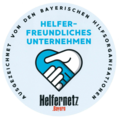![[Translate to englisch:] ECMO am UKR](/fileadmin/_processed_/1/3/csm_HLM_3_a1559e19c3.jpg)
Internal Medicine II
Surgical intensive care
The intensive care unit of the Clinic for Internal Medicine II is fully equipped with intensive care technology. More than 800 patients are treated each year, 70% of whom are on long-term ventilation. The treatment spectrum covers all acute diseases of internal medicine. There is close collaboration with the Department of Internal Medicine III (Haematology and Oncology) and the Department of Nephrology.
-
1. Acute severe respiratory failure
Patients whose blood oxygen saturation is dangerously low and whose blood carbon dioxide levels are dangerously high (acute respiratory failure) can be treated comprehensively by:
- Conventional invasive, non-invasive and high-frequency oscillatory ventilation
- Kinetic therapy and inhaled vasodilator therapy
- Extracorporeal lung support procedures: Veno-venous ECMO and extracorporeal CO2 elimination
2. Patients in cardiogenic shock and post-resuscitation
- Differentiated haemodynamic monitoring
- Extracorporeal cardiovascular support (veno-arterial ECMO) and Impella®
- Individualised therapeutic hypothermia
- Multimodal monitoring of cerebral status using SSEP, EEG, NSE, CCT
3. Pulmonary circulation diseases
- Patients with acute pulmonary embolism and decompensated pulmonary arterial hypertension: Lysis therapy, interventional therapy, inhaled vasodilator therapy, percutaneous acute thrombectomy
- Extracorporeal circulatory support
4. Acute renal failure
- Renal replacement therapy: GENIUS, CVVH, CVVHD
- Acute plasmapheresis
5. Acute decompensated haemato-oncological diseases
-
ECMO is a miniaturised heart-lung machine that can temporarily support or replace the functions of the heart and lungs. This allows time for the healing process to take place, and the need for mechanical ventilation and catecholamine therapy can be reduced and made much gentler. In cases of permanent, chronic organ failure with no hope of recovery, this technique may be used to bridge the gap to heart or lung transplantation. In principle, there is no difference between ECMO use in children and adults.
Qualified ECMO Centre
The Regensburg University Hospital (UKR) has proven international expertise in the field of extracorporeal membrane oxygenation (ECMO) and has been recognised as a centre of excellence by the Extracorporeal Life Support Organisation (ELSO). For more information, please visit the website of our ECMO Centre
Information and further training for doctors:
Information for relatives about ECMO
ECMO - Information flyer
Download
-
We use the nursing science concept of Advanced Nursing Practice (ANP) to support patient care in particularly sensitive or complex areas. Care can be significantly improved through the targeted use of nursing science methods. Nursing experts work directly with the patient or advise caregivers and family members. The focus is on supporting ECMO therapy with special training programmes and interface work between the intensive care unit and the connected wards.
Support from practical instructors
Specially trained practical instructors guide the induction process for new staff, postgraduate students and healthcare trainees. Ongoing staff training ensures that the latest medical and nursing knowledge is applied in accordance with the latest scientific findings. All relevant data and measurements are recorded and documented using the MetaVision ICU electronic patient data management system.
Quality through expertise
All of our ward staff are specially qualified. Our team includes
- Specialists with advanced training in anaesthesia and intensive care medicine
- Wound experts ICW e. V.
- Quality managers
- Pain care managers (univ.)
Contact
Medical team
- Prof. Dr. Thomas Müller, Internal Medicine, Internal Intensive Care Medicine and Pneumology
- PD Dr. Matthias Lubnow, Internal Medicine, Internal Intensive Care Medicine and Pneumology
- Dr. Roland Schneckenpointner, Internal medicine, internal intensive care medicine








